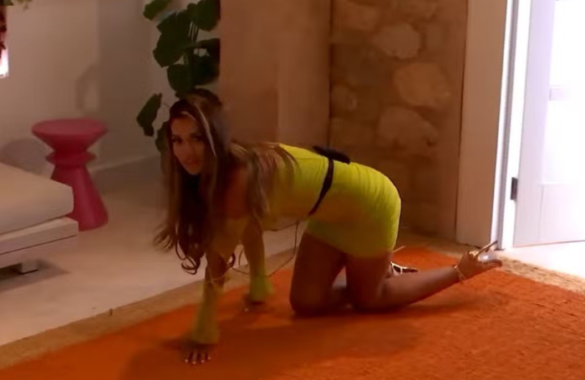

It's a bit like the over-reactions people can have when they're driving, like swearing or fist waving that they wouldn't do if they were face to face with someone. I think the online element reduces inhibitions. Give all the attention to the person who has been wronged instead.Īre trolls likely to be bullies in real life? Ignore them just like you would discourage attention-seeking behaviour in children. What is the best way to deal with a troll? They tend to blame others for what would normally be their own, internal reaction instead. People with lower levels of self-awareness tend to assume that everyone operates the same way they do and have a hard time accepting that they may be different. Whatever we disown in ourselves, we are more sensitive to in other people, or we will "read into" their motives or behaviour. It's when we have awareness of a particular trait, quality or attitude because we actually possess it, but rather than acknowledge it's a part of us because we feel ashamed of it (there's the shame again), we "disown it". Projection is another consequence of a low level of self awareness. If we are not treated with compassion we may not develop compassion for ourselves and then by extension, for others.Ī lot of trolls like to say "you've got nothing better to do" to the person they are trolling - are they projecting? Again, one of the biggest influences is from parents who discouraged or shamed children for feeling or expressing their own natural emotions of hurt or sadness. In fact they get a perverse sense of pleasure from creating conflict, discomfort or distress. One of the next stages is the development of empathy, another thing that trolls have a complete lack of. If you tell a child they are hopeless they will take it on board and it will affect their ability to learn. " what you did was silly, I'm sure you can do better next time"), sets a poor foundation for a child's future stages of development. Making a child feel ashamed for who they are, as opposed to what they did (as in: " you are hopeless/stupid/an idiot, you should know better" vs. Shaming is the biggest factor in low self-esteem and unfortunately it is a very common disciplinary tool. In childhood, it's largely due to how we were parented. Our sense of who we are as a person and what we are capable of becoming starts in childhood but it's a fluid thing, shaped by other influences too, say a critical teacher at school, teasing during adolescence or even a controlling lover in your 20's. If they do feel powerless or have low self worth, did these feelings start in childhood? Or do they just creep up on a person?

There's a saying "hurt people hurt people". Chronically angry people are usually covering up a lot of stuff - both to themselves, and to others.
SECOND LIFE TROLLS DRIVER
For example, if someone narrowly cut in front of us in traffic, we would feel a jolt of fear but what we would find ourselves doing is abusing the other driver - we're more aware of the anger, which actually comes second to the fear but covers it up. Primary emotions are the vulnerable ones we often feel first but don't acknowledge to ourselves. Anger is what we call both a primary and secondary emotion. Road ragers sometimes use their anger to dissociate from feelings of anxiety and helplessness - could it be the same for trolls? The bullying is a way of proving to themselves that they are not. They will try to convince themselves that they are OK with themselves, but at a deeper level they usually have a sense of being powerless or inadequate. How do they feel in their 'normal' day to day lives?īullies tend to have a low level of self-awareness. Problem is all these feelings are transient, they don't last and so the person will have to do it again and again, trying to get shreds of those positive payoffs to prop up a fragile self-esteem, rather than doing it in a healthy way. Maybe it's that they feel marginalised or victimised in their lives and this is a way of getting revenge. Maybe they feel a sense of mastery when they come up with something they think is clever or brave and hit the send button. Someone with a low self-worth will put others down to build themselves up, will say outrageous things (and get approval from others with a low sense of self-worth).

We see the same thing in children, they would rather misbehave to 'be seen' than be ignored. It may be bad attention, but for some people that's better than none at all. Someone desperate for attention or recognition will get it. It depends on what they were emotionally motivated by as to what the payoff is.


 0 kommentar(er)
0 kommentar(er)
